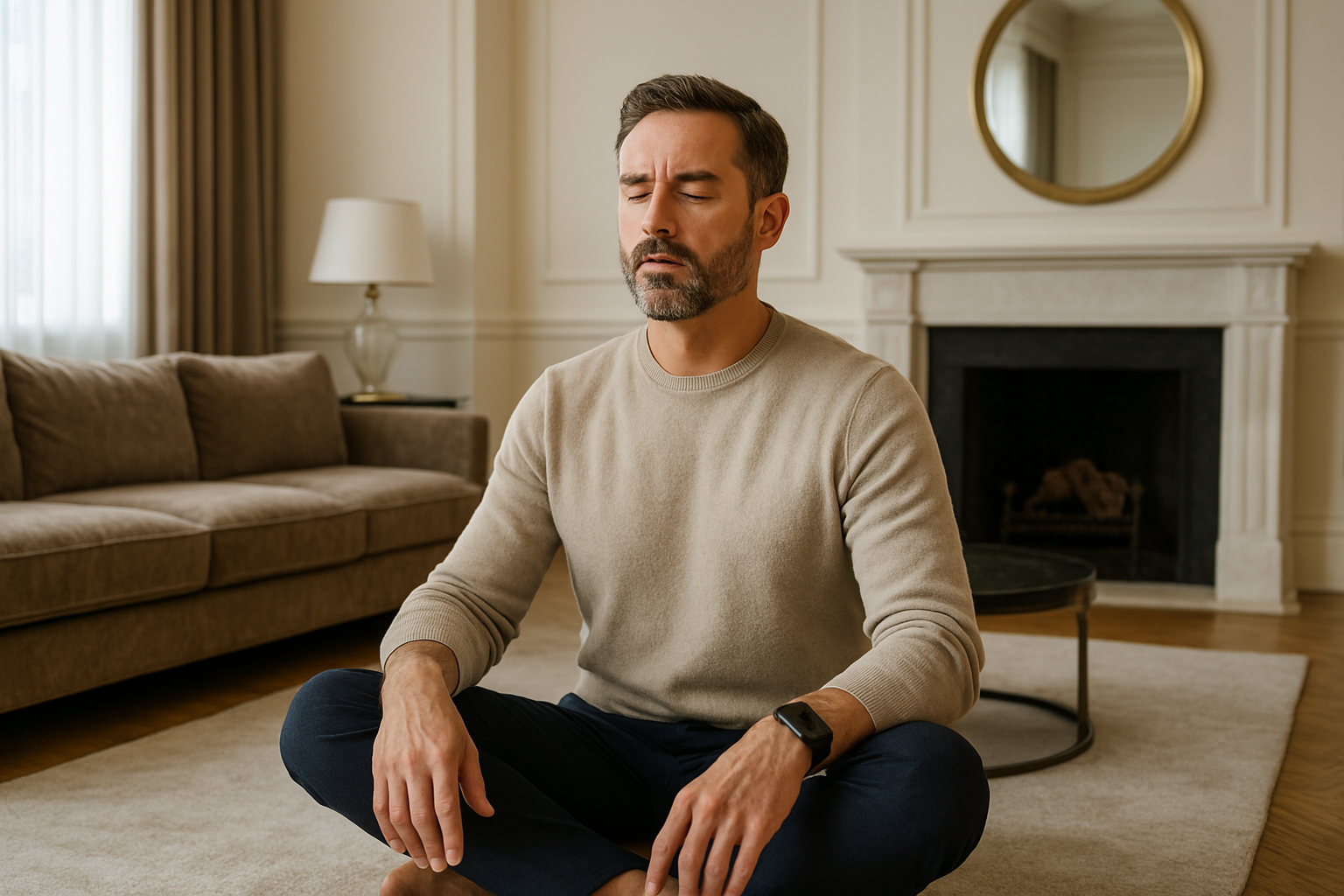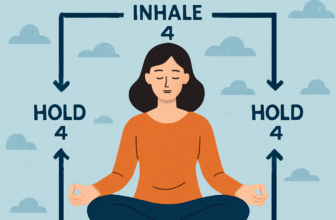
Breathing and mindfulness have long been aspects of ancient traditions for promoting wellness. But what if these age-old practices are also backed by modern science as tools to age gracefully and enhance longevity? Research indicates that the way we breathe and how we focus our mind can profoundly influence not only how we feel today but also how we age.
This blog will explore how deep breathing and mindfulness work on a physiological level to help you live longer and healthier. We’ll cover the science behind their effects on your body and outline practical exercises you can start today to enhance your well-being.
How Breathing Impacts Your Nervous System
Breathwork is not just about inhaling oxygen; it’s a powerful tool to reset your nervous system.
Activating the Parasympathetic Nervous System
Slow, deliberate breathing stimulates the parasympathetic nervous system, responsible for the “rest and digest” response. This calms your body by reducing heart rate and blood pressure, creating a sense of peace and balance.
The vagus nerve, a central component of the parasympathetic system, is particularly responsive to deep, diaphragmatic breathing. Research shows that activating the vagus nerve improves heart rate variability (HRV), a key measure of cardiovascular health and stress resilience. A study found that a single session of abdominal breathing significantly boosted HRV in older adults, providing a relaxation response that fosters better aging.
Regulating Stress Hormones
Chronic stress accelerates aging, driving inflammation and increasing your risk of diseases like heart disease, arthritis, and dementia. Deep breathing counters this by lowering cortisol, the stress hormone. Regular breathwork not only calms your mind but also reduces inflammatory markers in your blood, such as C-reactive protein (CRP). A clinical trial even observed a 25% drop in CRP after 60 days of daily deep breathing exercises.
If you need further convincing, think of each deep breath as an antidote to the stress that chips away at your cells over time.
Enhancing Circulation and Oxygen Delivery
The way you breathe directly impacts how efficiently your blood circulates oxygen through your body.
Nitric Oxide Production and Blood Flow
Breathing through your nose stimulates the production of nitric oxide, a molecule that relaxes and dilates blood vessels. This improves blood flow and lowers blood pressure. Studies show that nasal breathing can even lower blood pressure acutely thanks to nitric oxide’s effects on vascular health. Better circulation ensures that vital tissues receive the oxygen and nutrients they need to thrive.
Oxygenating Your Cells
Deep breathing enhances oxygen delivery to your cells, helping them function optimally. It’s like giving your body a regular tune-up by simply changing how you breathe.
Fighting Oxidative Stress and Boosting Metabolism
Our cells are constantly under attack from free radicals, unstable molecules that contribute to cellular aging. Fortunately, breathwork offers additional protection.
Studies show that regular breathing exercises can boost your body’s natural defenses, increasing antioxidant levels like glutathione and reducing damage from oxidative stress. This improves cellular health, slows down aging, and may even support metabolism.
Mindfulness and Stress Hormones
Mindfulness meditation doesn’t just improve your mental state; it profoundly affects your physiology as well.
Lowering Cortisol Levels
Mindfulness has been proven to reduce cortisol levels by activating the body’s relaxation response. Keeping cortisol in check over time prevents wear-and-tear on your organs and immune system, which are heavily affected by chronic stress.
Supporting Telomeres
Telomeres, the protective caps on the ends of your DNA, play a critical role in aging. Chronic stress shortens these telomeres, accelerating cellular aging. However, mindfulness practices like meditation may help protect telomeres. Some research has even linked regular meditation to longer telomeres.
If reducing stress and protecting your DNA isn’t motivation enough, consider this bonus benefit of mindfulness: improved mental clarity and emotional well-being.
Practical Mindfulness and Breathing Exercises
It’s one thing to know about the benefits of breathwork and mindfulness, but how do you incorporate these practices into your daily life? Here are some beginner-friendly techniques to get you started.
1. Diaphragmatic (Belly) Breathing
- How it works: Sit or lie down. Place one hand on your belly and inhale deeply through your nose, letting your belly rise. Exhale slowly through your mouth, feeling your belly fall.
- Why it works: This simple exercise activates the vagus nerve, promoting relaxation and reducing stress within minutes.
2. Box Breathing
- How to do it:
-
- Inhale for 4 seconds.
- Hold your breath for 4 seconds.
- Exhale for 4 seconds.
- Hold again for 4 seconds. Repeat for 5 minutes.
- Why it works: Used by Navy SEALs to manage stress, this practice helps build resilience while calming the nervous system.
3. Mindfulness Meditation
- How to do it: Sit quietly, close your eyes, and focus on your breath. Notice the sensation of air moving in and out. When your thoughts wander, gently bring your focus back to your breath. Start with just 5 minutes per day and gradually increase.
- Why it works: Mindfulness strengthens cognitive function, lowers cortisol, and enhances mental clarity.
4. Nasal Breathing During Sleep
- How to do it: Use simple aids like nasal strips if you tend to mouth-breathe at night. Breathing through your nose improves oxygen intake and helps maintain calmness even while you sleep.
5. Guided Breathing Apps
Technology can help you stay on track. Apps like Calm and Headspace offer guided breathing exercises and mindfulness meditations to make your practice easy and accessible.
Longevity in Your Hands
Breathing and mindfulness offer science-backed, practical ways to enhance your health and longevity. Simple practices like diaphragmatic breathing or a few minutes of meditation can create powerful shifts in how your body ages.
The best part? These tools are free, accessible, and require no special equipment. Start small—with just a few deep breaths or a mindfulness session each day. Over time, these habits will not only help you feel better but may also extend your health-span.
Take a deep breath today and begin the small changes that can lead to a healthier, more vibrant tomorrow.





